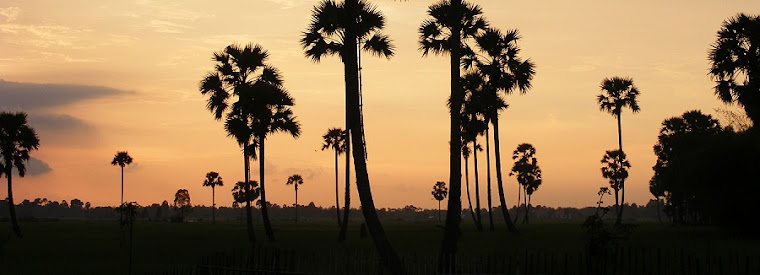The beauty of conservation agriculture is in its simplicity.
Like so many things in life, we try to improve and make things more efficient,
only to discover that over time these short-cuts cut-short our efforts. They
may make things faster and easier for a moment, but over the long-term, we lose
out. Even worse, our neighbours and our children lose out. Yes, if done well,
conservation agriculture can be a beautiful solution to hunger. It can promote
economic growth, and make food security a possibility for those with even the
fewest resources.
Conservation agriculture stands on three basic principles:
minimal soil disturbance, permanent soil cover, and crop rotation. Where do
these principles come from? By observing and understanding natural ecosystems
in the world around us. When, in nature, do you see a field with just one type
of plant? Does the soil spontaneously invert itself every year, suddenly
exposing all of the sensitive microorganisms to the harsh rays of the sun? In a
forest, does water run off the ground in sheets? When was the last time you saw
bare soil in a meadow? Much like the human body, the resilience and
sustainability of these ecosystems depends on a myriad of complex interactions,
recycling, and feedback loops that keep things in balance. The more we remove
our farming practices from the way an ecosystem naturally functions, the more
work we have to do to keep everything going. Plant a single crop, and you’ll
have to put more nutrients into the soil. Leave the soil bare and you’ll have
to water and weed more. Plough, and the soil will become compact and hard,
resulting in more water loss and more leeching of nutrients. The cycle
continues to spiral. Our groundwater and rivers dry up from excessive
irrigation at the commercial scale. What water is left becomes clogged with
soil runoff and chemical fertilizers. Genetically modified crops boost yield
and help secure against weeds or pests that could otherwise easily destroy whole
fields, but we are forever reliant on those companies for seed, hoping we can make
some profit before the pests in question become resistant and we have to turn
to something else. Sure, with enough money and technology you can stay ahead
and have good yields. But in the long-term, we lose out.
 |
| Sebastian taking notes during our field visit. Behind him a demonstration plot outside showing intercropping of Pigeon Peas and maize- a great way to keep the soil covered and restore nutrients. |
There are challenges to overcome, but how should we face those
challenges? You have a particularly difficult chemistry problem sitting in
front of you and your homework is due in an hour. Do you quickly copy the
answer from a friend, who may or may not have the right answer? Do you just
scribble something down, hoping you get partial marks? Do you cheat and look up
the answer on the internet, knowing that does nothing to help you understand or
solve the problem for when exam time comes?
Short-cuts cut-short. My highschool teacher used that phrase
in class all the time. The same principles of doing things on-time,
efficiently, and to high standard apply whether you are talking about chemistry
homework or agricultural practices. Does this phrase suggest that innovation
and initiative are discouraged? On the contrary! People who search for
solutions with integrity, wisdom, collaboration, and foresight can bring about
positive change. These solutions can improve efficiency, quality,
accessibility, and resilience over the long-term. It is short-cuts driven by
ignorance, laziness, or selfish ambition that cut short.
Adaptability is key. One of the many things I took away from
my week at the conservation agriculture conference in Zambia was that there is
no “one solution fits all.” No one NGO, program, or conservation agriculture
program has all the answers. No one minister of agriculture promoting certain
policies can solve all of the problems. No magic phrase like “community mobilization” “farmer to
farmer extension” or “participatory project development” will result in
immediate uptake of CA techniques. It is a journey that needs cooperation,
involvement, and servant-hearted leaders at all levels. It takes humility to
admit when something isn’t working and to learn from those who’ve been on this
road a lot longer than you have. It takes a listening ear to hear what
community members are saying, or not saying. There are no magic short cuts, but
there is much we can learn from each other and much we can discover by working
together.
1 CA in general does not condone or promote the
use of fertilizers, though different NGO’s or government agencies may have
their own agendas. Many CA extensionists instruct on the efficient placement
and minimal usage of fertilizers in the first years to help boost soil
fertility in areas that are seriously degraded. But over time, as soil
fertility improves, fertilizer use can be reduced.





